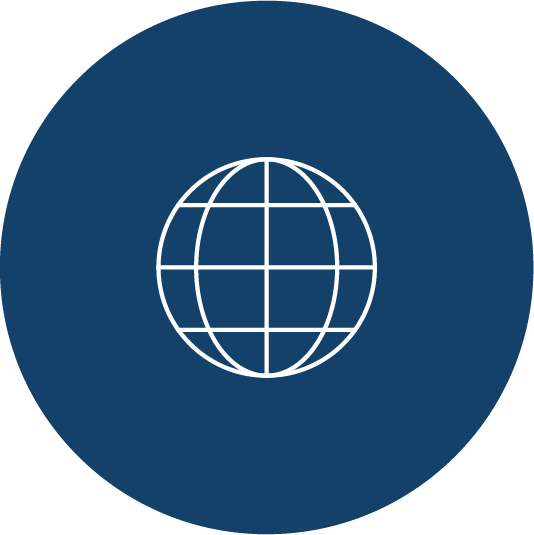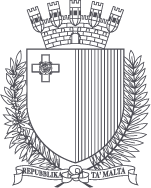The Directorate General Support Services in the Ministry for Foreign Affairs and Trade is accountable to the Permanent Secretary. The role of this Directorate General is to act as focal point for the Permanent Secretary on all areas falling under its remit and to ensure the implementation of the Ministry’s programmes/projects/initiatives in a timely, efficient and effective manner.
The Directorates falling under the direct responsibility of the Directorate General Support Services are:
- Directorate Corporate Services
- Directorate Consular Services and Maltese Living Abroad
- Infrastructure and Security Unit
- Missions Abroad and Development Unit.
Directorate Corporate Services
The Directorate Corporate Services is responsible for Administration, Human Resources, Finances and General Support to the Ministry for Foreign and European Affairs and Trade.
The Finance and Accounts department includes:
- The Accounts Section for Head Office which manages the budget for Head Office.
- The Mission Accounts Section is responsible for the auditing of Embassies’ accounts.
- The Procurement Unit is responsible for designing and implementing procurement processes leading to the establishment of a contract for the purchase of supplies, services and works, in full accordance with the National Procurement Regulations and other related circulars as may be necessary.
- The Travel Unit is responsible for all the Ministry’s travel requirements.
Human Resources department
The Human Resources department manages all matters pertaining to personnel for both Head Office and Mission based officers, amongst others:
- All processes in connection with calls for applications approved in the Capacity Building.
- Appointment letters.
- Officers’ Performance Management Programme records.
- Updated records of all officers within the Ministry following the necessary procedures as per PSMC.
- Coordinating Registries.
- General support services for all staff.
Directorate Consular Services and Maltese Living Abroad
The Directorate for Consular Services and Maltese Living Abroad deals directly with the general public. With the assistance of our diplomats serving abroad, the Directorate provides a broad range of services to Maltese citizens, ranging from medical assistance to assistance to victims of crime and loss or theft of travel documents.
In the above situations, the Directorate acts as the point of contact between the individual who is abroad and their family at home, facilitates financial transactions when required, and, in countries where Malta has a diplomatic presence, ensures that Maltese diplomatic officials, whenever possible, visit and assist the person in distress. The Directorate also helps in searching for Maltese nationals reported missing while abroad and provides information to their families. All requests for information are treated as confidential.
Arrest or detention while abroad
Whenever a Maltese national is arrested or sentenced by a foreign court, MFET acts as the means of communication between the detained individual and their family in Malta, and tries to ensure that the convicted citizen has access to adequate legal representation in a language that they understand.
Emergency or crisis situations
Whenever a country or region is affected by an emergency or crisis situation, such as a natural disaster or terrorist attack, the Directorate serves as the point of contact between Maltese nationals who are caught in the crisis and their concerned families in Malta. In such cases, the Ministry sets up an ad hoc Emergency Crisis Centre equipped with emergency telephone lines to address the public’s queries. The Directorate also maintains constant communication, through its Embassies, High Commissions and Consulates, with the local authorities where the crisis occurred and with other EU member states to ensure that it receives the latest official information on the crisis.
Visa applications and travel advice
The Directorate provides general information concerning visa requirements and visa application procedures to Maltese nationals wishing to travel abroad. It also provides regularly updated travel advice regarding safety or security issues in specific countries.
Legalisations
The Legalisation Unit within DCSMLA issues Apostilles and Legalisations. Apostilles and Legalisations are authorised endorsements of public or commercial documents that are officially recognised by both the country of issue and the country in which they are to be used.
Scholarships
Local and foreign governments offer a number of scholarships to Maltese citizens who may wish to continue their studies abroad. Following an official notification of an offered scholarship, the Directorate issues a press release, distributes and receives applications from interested parties, and coordinates interviews, when applicable. The Scholarship Unit within the Directorate also offers practical guidance to successful candidates.
Rogatory letters
Every legal process involving Maltese and foreign jurisdictions requires the assistance of this Directorate, which, through its network of Embassies and Consulates abroad, serves as the main point of contact between the juridical authorities of the countries concerned.
Consul-on-the-Move
The main objective of the Consul on the Move (COTM) Programme is to provide a number of consular services which are normally only available at Malta’s Embassies, High Commissions and Consulates General abroad. The initiative began in 2016 following the introduction of the biometric passport, which requires the applicant to physically call at the Mission to apply and to have his biometric data captured. Besides passport applications, the services offered through the COTM include applications for life events certificates and Maltese citizenship. The Programme conforms with the government’s policy to bring its services closer to its citizens. Currently the service is available in the countries with the largest number of Maltese residents, i.e., Canada, USA, UK, Australia and New Zealand. The Directorate for Consular Services and Maltese Living Abroad coordinates the consuls’ annual visits to Malta, together with the High Commissions and Embassies involved. DCSMLA works constantly to ensure that the mobile service offered to Maltese citizens resident abroad is of the highest possible level.
Maltese Living Abroad Unit
This Unit is specifically dedicated to safeguarding the interests of Maltese citizens living abroad.
The Directorate also takes care of the gathering of information related to the Maltese diaspora; the regular monitoring of local legislations and EU regulations potentially affecting Maltese living abroad; the provision of consultation and advice to Government on matters affecting the Maltese diaspora; keeping close contact with and assisting the Secretary of the Council of Maltese Living Abroad as per Act XX of 2011 (CAP 515) with the continuation and implementation of decisions made from time to time and with the organization of the annual CMLA Meeting in Malta, as well as other meetings; assisting in the preparation for the Convention for the Maltese Living Abroad; maintaining a register of NGOs and Associations of Maltese living abroad; maintaining a register of successful Maltese living abroad; and, promoting and encouraging the voluntary registration of Maltese citizens living abroad, known as Notification D.
Maltese Living Abroad website: https://malteselivingabroad.gov.mt/
Infrastructure and Security Unit
The Infrastructure and Security Unit is responsible for the Ministry’s capital projects, maintenance and upkeep, and security of all Ministry properties locally and abroad. The Unit is the focal point for all EU funded projects. It is also tasked with the management of lease and services agreements, flag management, and Inventory.
Missions Abroad and Development Unit (MADU)
The MADU team focuses principally on the:
- Coordination of and preparations for movements to Missions Abroad;
- training necessary for officers called on duty abroad through the Posting Training Programme (PTP), made up of over 30 modules. The PTP forms part of the specialised training section of the Institute for Public Services’ (IPS) prospectus.
- Missions Reports;
- training for newly recruited diplomats, which includes a two-year induction programme (ITP) that involves a rotation of placements throughout the Ministry;
- the Mentoring Scheme, through which experienced officers receive training so that together with line management they can assist the newly recruited diplomats during their ITP;
- continuous professional development of the diplomats;
- coordination of language training in collaboration with the Ministry for Education, Sport, Youth, Innovation and Research (MEYR); and,
- together with the Office of the Permanent Secretary, coordinates outreach activities with educational institutes including the University of Malta, MCAST and the Directorate for Educational Services within the MEYR, as well as opportunities to augment high-ranking officers’ wellbeing through the programme “Strengthening the Leadership Capacity”.
The team is also the reference point for Missions Abroad and facilitates training programmes for the Ministry for Foreign and European Affairs and Trade as required by the Permanent Secretary, the Directorates and the Missions that make up this Ministry.
Furthermore, the Unit collaborates with the Human Resources Department and in particular assists with calls such as the Seconded National Experts (SNE) and similar calls in connection with European Union Staffing (EU Staffing).






